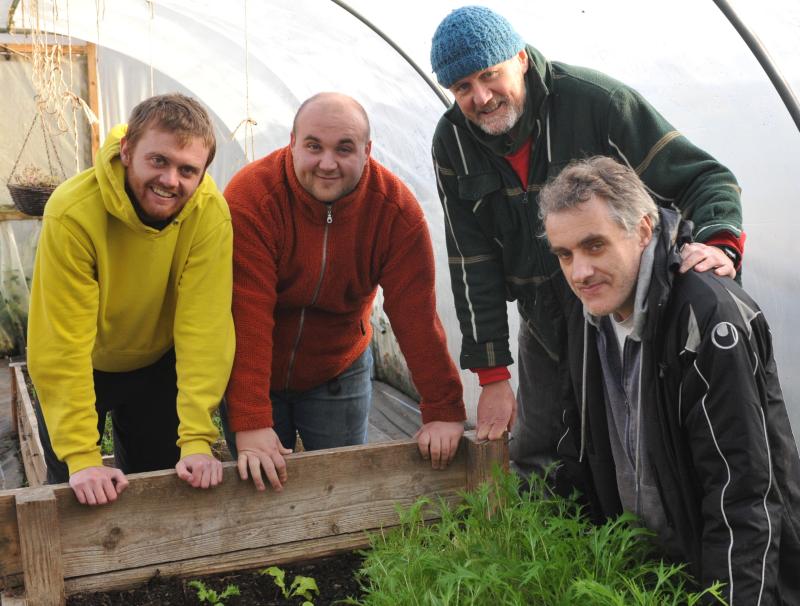
A pioneer of care farming in Wales is mentoring other farmers contemplating diversifying into a sector that provides education to some of society’s most vulnerable people.
Jim Bowen and his parents, Gil and Tom, established Clynfyw Care Farm on their 300-acre organic holding near Boncath in 2011.
It provides respite and care for vulnerable people using land-based and creative projects, ranging from growing vegetables to charcoal making and rehousing former caged hens.
The facility now employs 43 staff, provides accommodation in converted farm buildings for eight people with mild or moderate learning disabilities to live semi-independently.
The farm also has a programme of meaningful activities for up to 40 people living in Carmarthenshire, Ceredigion and Pembrokeshire.
Jim is a mentor with the Welsh government's Farming Connect Mentoring Programme, providing guidance to other farmers considering establishing a care farm.
Demand for places at Clynfyw is so high that more providers are needed, he says.
“We are currently full and have to turn people away which is disappointing for them and for us.”
Higher provision in this sector would also reduce travelling time for participants, he adds.
“We cover 100,000 miles a year, transporting participants to and from Clynfyw; we could reduce that if people had the choice of care farms nearer to their homes.”
In 2018 alone, Jim helped eight mentees through the Farming Connect Mentoring Programme and also programmes run by Renew Wales and Social Farms and Gardens.
As well as giving guidance, Jim makes farmers aware of the realities of care farming.
“Running a care farm is not easy, but it is extremely rewarding,” he explains.
“Through my role as a mentor, people can see what is involved without investing time and money. I am hopefully helping people to not make the mistakes that we made.”
Care farming is not for those who are averse to paperwork, he suggests.
“I have a filing cabinet full of risk assessments and care packages; the responsibility is pretty dramatic.”
When previous generations of Jim’s family actively farmed Clynfyw, it employed a large workforce; farming on this scale now would provide jobs for just a few people.
Giles Evans, Clynfyw’s participant co-ordinator, says Jim’s vision has turned this around by providing jobs for dozens of people once again.
“Jim is helping to revive the rural community. He is very modest about his achievements, but he should pat himself on the back,” he says.
Whilst Jim might be resistant to praise, that ‘pat on the back’ was given when Clynfyw Care Farm was named Best Rural Diversification Project.
The profile this has given the facility is helping to raise awareness of care farming, says Jim.
“We are not good at patting ourselves on the back, but the awards are a tool we can use to get therapeutic land taken seriously.
“Now, more so than ever because of the climate crisis, the most vulnerable need to be included at the very heart of localised food production too.”
